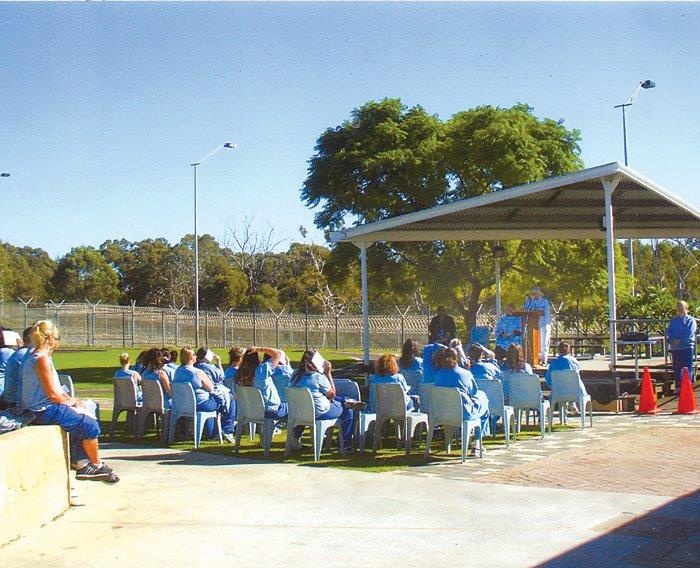Rev Frances Hadfield is a Uniting Church Chaplain at Bandyup Women’s Prison. Here she reflects on some of the challenges within WA’s justice system.
“I’m so happy to be here.”
This statement was from a young woman aged 19 who had arrived in Bandyup Women’s Prison. I looked at her in astonishment and asked her why. She told me her story.
Things had gone pear-shaped for her and she had been living on the streets for a year; in fear for her life, living by her wits, hungry and tired. She had deliberately offended by stealing from a home with the hope of being arrested. Now she was in Bandyup and she was safe; she had a bed and a roof over her head, she had food to eat and people to talk to. Never mind that her freedom had been taken from her, freedom out there had been too much. Now she could work or study or do a program which would assist her upon release.
In my chaplaincy work and wanderings around the prison, there are so many stories – women who have lost their homes and live on the streets, some with their children. Some might be lucky and have a car to sleep in. But it then gets too much for their mental health and they offend, so they can have the weight taken off their shoulders for a while, and have their children taken over by the Department of Child Protection (DCP).
Many women (and men) are in prison because they have a mental health problem and behave in ways that are not acceptable to the wider community. For one woman suffering in that way, Bandyup is her home. She is regularly granted parole, but then she deliberately breaks her parole conditions so she is placed back at Bandyup.
Those who suffer with Bi-Polar or Schizophrenia could break the law by behaving in ways that are antisocial and illegal, so they are sent to prison. Prison officers, however, are not trained to be mental health specialists; they are trained to keep the good order of the prison.
I observe the officers, placed in charge of the unit where most of the mentally unwell women reside, experiencing extreme stress because there is an uncertainty of what the day will bring next. I also encourage them to share their feelings with me so that some of the stress will be dealt with.
In my years of being a chaplain in prison I have heard so many tragic stories. I have a longing for things to change, for society to be more compassionate towards those who have little, for the justice system to not just charge people and sentence them to imprisonment. I long for community to offer assistance to those who have racked up fines, so they learn to budget and pay off their fines, instead of gaining a criminal record by going to prison, so that their fines are paid in that way.
How can we as a church assist? I leave that question with you. Whatever happens, things need to change.
Frances Hadfield
The Uniting Church WA, agreed at the annual meeting of the Synod of WA to support a change in WA’s approach to criminal justice, asking to move towards a more holistic, prevention-based approach that prioritises cultural, social and emotional wellbeing for people at risk of incarceration. Click here to read more.
